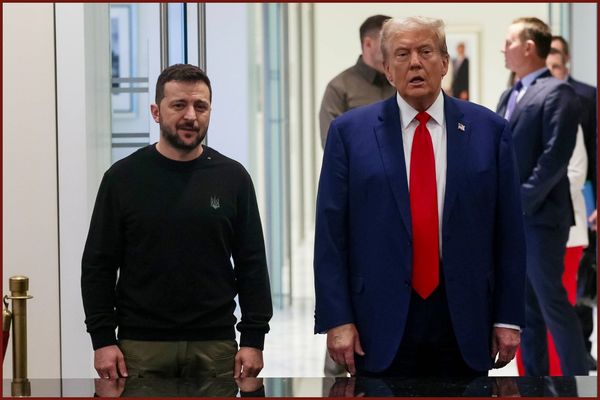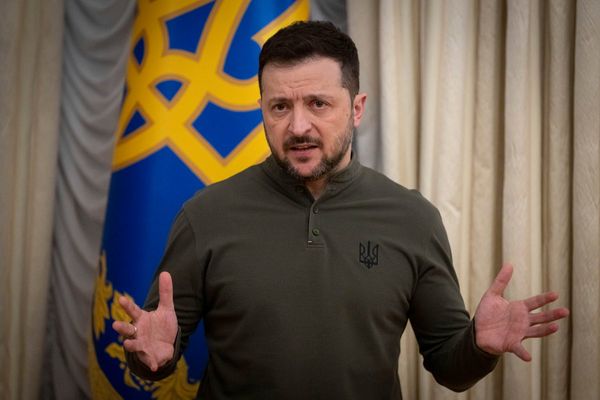Volodymyr Zelensky said during a meeting with US vice president JD Vance that Ukraine wants "security guarantees" before any talks to end the Ukraine-Russia war.
Shortly before sitting down with Mr Vance at the Munich Security Conference, the Ukrainian president said he will only agree to meet in-person with Russian leader Vladimir Putin after a common plan is negotiated with US President Donald Trump.
Mr Zelensky believes Trump is the key to ending the Russia-Ukraine conflict, and said the US president gave him his telephone number.
Trump this week upended years of steadfast US support for Ukraine following a phone call with Putin.
Mr Zelensky spoke shortly before going into a meeting with US vice president JD Vance.
Many observers, particularly in Europe, hope Mr Vance would shed at least some light on Trump's ideas for a negotiated settlement to the war.
In his own remarks to the conference, Mr Vance lectured European officials on free speech and illegal migration on the continent, warning elected officials that they risk losing public support if they do not quickly change course.
"The threat that I worry the most about vis-a-vis Europe is not Russia. It's not China. It's not any other external actor," the US vice president said.
"What I worry about is the threat from within - the retreat of Europe from some of its most fundamental values, values shared with the United States of America."
He warned European officials: "If you're running in fear of your own voters there's nothing America can do for you."
Mr Vance's speech, and his passing mention of the three-year-old war in Ukraine, came at a time of intense concern and uncertainty over the Trump administration's foreign policy.
"In Washington, there is a new sheriff in town. And under Donald Trump's leadership, we may disagree with your views, but we will fight to defend your right to offer it in the public square," Mr Vance said to tepid applause.
The vice president also warned European officials against illegal migration, saying the electorate did not vote to open "floodgates to millions of unvetted immigrants" and referencing an attack on Thursday in Munich where the suspect is a 24-year-old Afghan who arrived in Germany as an asylum seeker in 2016.
The violence left more than 30 people injured and appears to have had an Islamic extremist motive.
Earlier on Friday, Mr Vance met separately with German president Frank-Walter Steinmeier, Nato secretary general Mark Rutte, and British Foreign Secretary David Lammy.
He used the engagements to reiterate the Republican administration's call for Nato members to spend more on defence.
Currently, 23 of Nato's 32 member nations are hitting the Western military alliance's target of spending 2% of the nation's GDP on defence.
"We want to make sure that Nato is actually built for the future, and we think a big part of that is ensuring that Nato does a little bit more burden sharing in Europe, so the United States can focus on some of our challenges in East Asia," Mr Vance told Mr Rutte.
Mr Rutte said he agreed that Europe needs to step up.
"We have to grow up in that sense and spend much more," he said.










